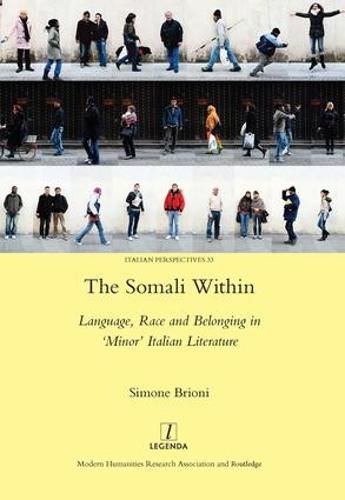Readings Newsletter
Become a Readings Member to make your shopping experience even easier.
Sign in or sign up for free!
You’re not far away from qualifying for FREE standard shipping within Australia
You’ve qualified for FREE standard shipping within Australia
The cart is loading…






The recent histories of Italy and Somalia are closely linked. Italy colonized Somalia from the end of the 19th century to 1941, and held the territory by UN mandate from 1950 to 1960. Italy is also among the destination countries of the Somali diaspora, which increased in 1991 after civil war. Nonetheless, this colonial and postcolonial cultural encounter has often been neglected. Critically evaluating Gilles Deleuze and Felix Guattari’s concept of ‘minor literature’, as well as drawing on postcolonial literary studies, The Somali Within analyses the processes of linguistic and cultural translation and self-translation, the political engagement with race, gender, class and religious discrimination, and the complex strategies of belonging and unbelonging at work in the literary works in Italian by authors of Somali origins. Brioni proposes that the ‘minor’ Somali Italian connection might offer a major insight into the transnational dimension of contemporary ‘Italian’ literature and ‘Somali’ culture.
$9.00 standard shipping within Australia
FREE standard shipping within Australia for orders over $100.00
Express & International shipping calculated at checkout
The recent histories of Italy and Somalia are closely linked. Italy colonized Somalia from the end of the 19th century to 1941, and held the territory by UN mandate from 1950 to 1960. Italy is also among the destination countries of the Somali diaspora, which increased in 1991 after civil war. Nonetheless, this colonial and postcolonial cultural encounter has often been neglected. Critically evaluating Gilles Deleuze and Felix Guattari’s concept of ‘minor literature’, as well as drawing on postcolonial literary studies, The Somali Within analyses the processes of linguistic and cultural translation and self-translation, the political engagement with race, gender, class and religious discrimination, and the complex strategies of belonging and unbelonging at work in the literary works in Italian by authors of Somali origins. Brioni proposes that the ‘minor’ Somali Italian connection might offer a major insight into the transnational dimension of contemporary ‘Italian’ literature and ‘Somali’ culture.